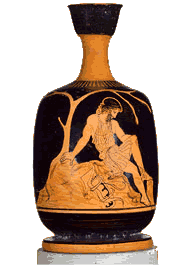According to Aristotle, a tragedy must be an artistic whole. It must start with no external presuppositions and be complete at its ending. The concept of the wholeness or completeness of a tragedy is further developed in Aristotle's consideration of the beginning, middle, and end of a tragic plot, and is essential to Aristotle's understanding of tragedy. |


